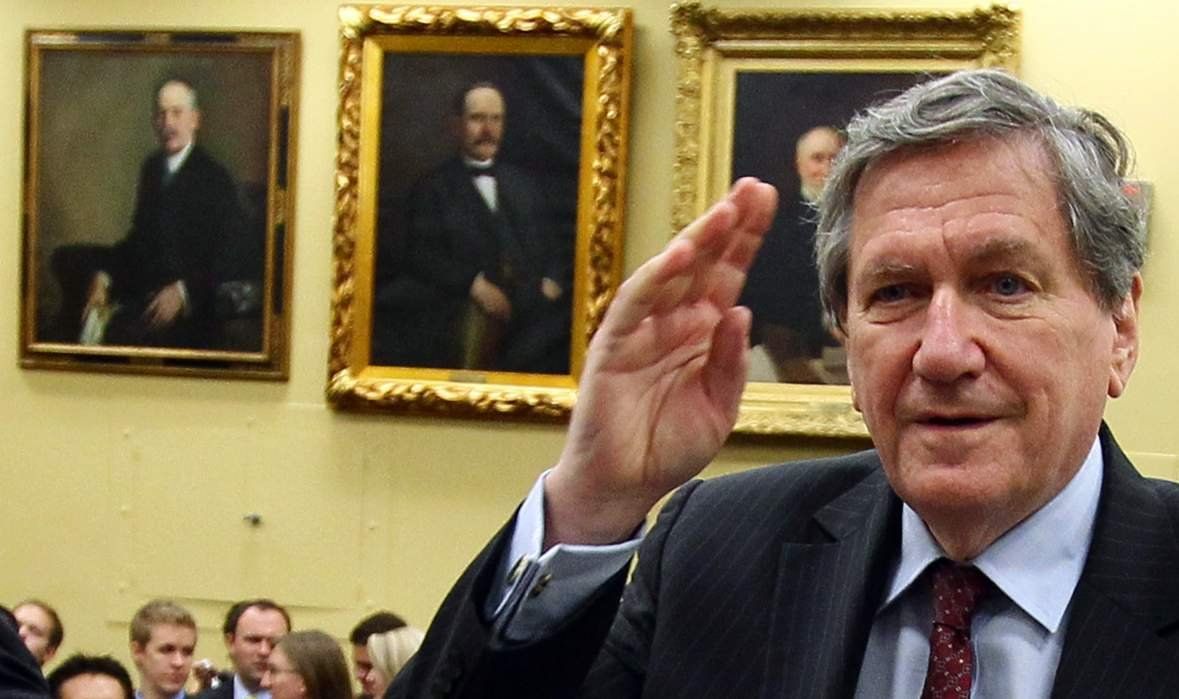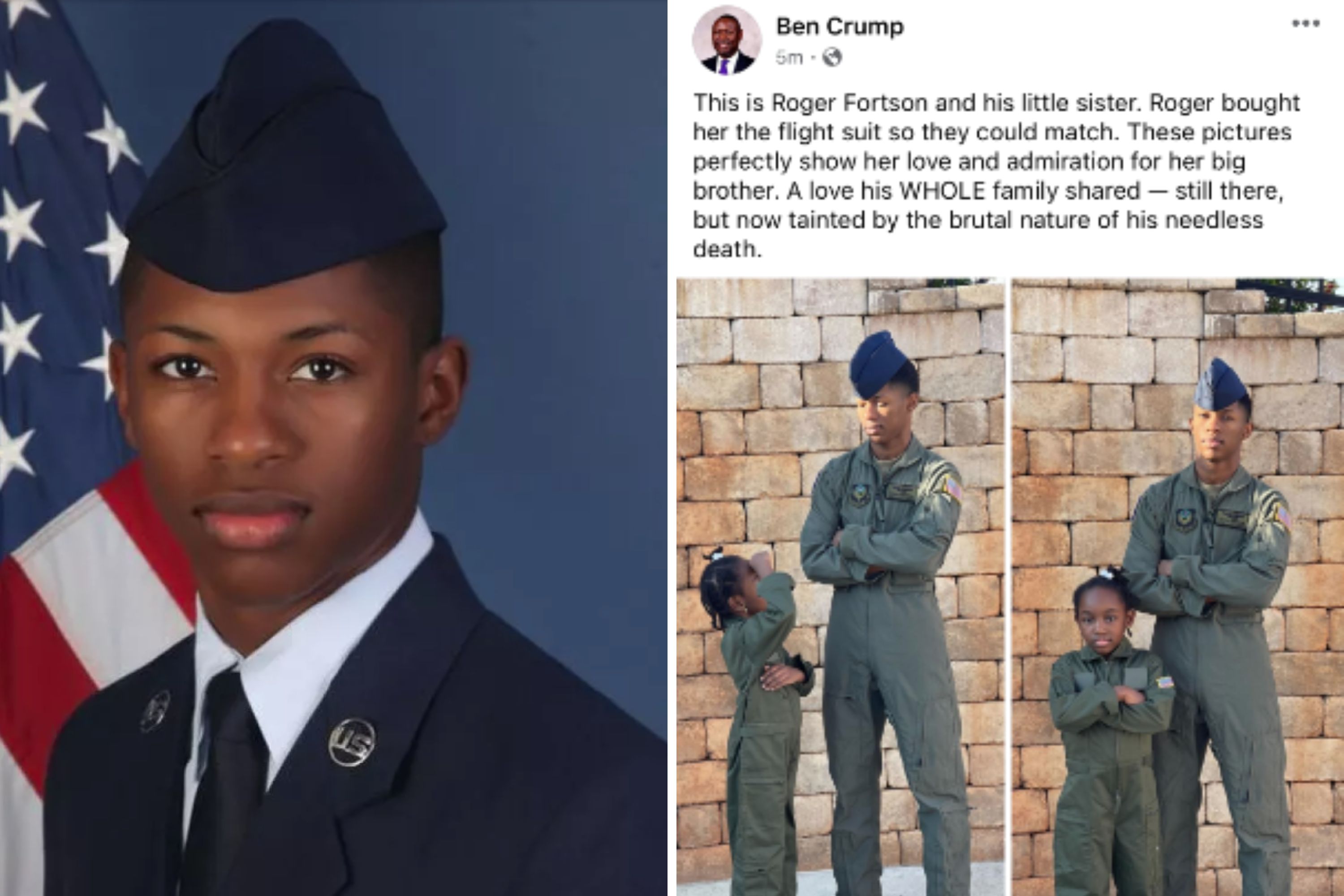
"He is simply one of the giants of American foreign policy," President Obama said of Richard Holbrooke on Monday. Obama spoke in the present tense, but it was clear by then that Holbrooke was dying. It was an elegant presidential tribute to a man who had been a presence in American foreign policy for half a century. It was, nevertheless, an overstatement. Eulogies aside, Holbrooke died a disappointed man. He was, arguably, the last casualty of Vietnam.
The procession of visitors to George Washington University Hospital on Sunday showed the esteem Holbrooke enjoyed. Vice President Joe Biden, Secretary of State Hillary Clinton, and Gen. James Jones, Obama's first national-security adviser, were in a queue of people arriving to pay what all knew would be their last respects. Holbrooke had been rushed to hospital on Friday after collapsing during a meeting with Clinton. He barely survived a 21-hour operation to repair the catastrophically torn aorta in his heart. But a follow-up operation on Sunday to repair consequential damage was a last, desperate effort, and his visitors knew it.
Holbrooke's position in the American foreign-policy establishment was a unique one—admired but never trusted with one of the top jobs. He died at 69 having failed to achieve his great ambition, which was to be secretary of state. His last assignment—as Obama's special representative for Afghanistan and Pakistan—was one long frustration. He was accomplishing nothing; he knew it, and he saw the military persuading Obama to edge deeper into what he had come to see as another unwinnable war, like Vietnam. Stunned colleagues wonder whether that frustration was a factor in his death. Holbrooke had been complaining for weeks how tired he felt—a deeply uncharacteristic admission by a man celebrated for his manic energy. His aorta had apparently been leaking for some time. Colleagues wonder whether the blood pressure of a deeply frustrated man may have contributed to the tear.
Despite what everyone acknowledged was his brilliance, Holbrooke left no enduring mark on American foreign policy—no encompassing vision of U.S. foreign policy in the 21st century, as George Kennan laid out for the Cold War. He had one triumph to his credit: the 1995 Dayton accords that brought peace after the bloody 10-year war among the fragments of Yugoslavia. Belated U.S. military intervention in the Balkans had ensured a military standoff with the boundaries of the warring statelets largely intact. The task at Dayton was to persuade the Serbs and Bosnian Serbs to accept this. Holbrooke, having more or less imprisoned the delegations on the U.S. airbase at Dayton, Ohio, cudgeled them into grudging submission. Ironically, it was a success that owed much to the quality that made Holbrooke's reputation in the foreign service so ambiguous: what his many admirers saw as his forcefulness, his equally numerous critics saw as bullying bullheadedness.
Nuance never was Holbrooke's style. His attitude had its roots in his indelible experiences in Vietnam. He went there as a 22-year-old in 1963, and was there for three years, first out in the Mekong Delta among the population, then in Saigon on the staff of successive U.S. ambassadors. He shared an office with a remarkable group: Les Aspin, later a congressman, and finally Bill Clinton's defense secretary; Anthony Lake, later Clinton's national-security adviser; and Leslie Gelb, later a distinguished journalist at The New York Times and now president emeritus of the Council on Foreign Relations. Aspin would recall years later that, although they had all been called up for military service, they pointedly wore civilian clothes. They constituted, Aspin would say, "the in-house dissidents." According to Aspin, they all believed the war was unwinnable, and they scorned the military's argument that "if you just give us more troops and more time," victory would be attainable.
Holbrooke's brains and analytical abilities soon saw him back in Washington, close to the center of power as an aide, first to Robert Komer—"Blowtorch Bob," whom LBJ had put in charge of pacification efforts in Vietnam—then on the staff of Undersecretary of State Nicholas Katzenbach, and finally on the U.S. delegation to the Paris peace talks to end the war. All this before he was 30.
Holbrooke never quite lived down his reputation from those years as a brash wunderkind. He never learned the knack of concealing his brilliance, nor of masking his impatience with those who disagreed with him. He never forgot what establishment wisdom had wrought in Vietnam. His career suffered. He did useful work as an assistant secretary, first for East Asian and Pacific affairs under Jimmy Carter, then for Europe under Bill Clinton. He was an early and impassioned advocate of a global effort by the U.S. to halt the AIDS epidemic. But his one stint as an ambassador to a foreign government was not a success: sent to Germany in 1993, he was withdrawn the next year.
His efforts to become secretary of state failed three times. Despite Holbrooke's success at Dayton, Clinton picked Madeleine Albright over him in 1996. He attached himself to Sen. John Kerry's run for president in 2004, but Kerry lost to George W. Bush. In 2008 he became affiliated with Hillary Clinton's campaign. When Obama became president in 2009, Holbrooke didn't even get the job as Clinton's deputy at State. Instead, Obama made him his special representative for Afghanistan and Pakistan.
It was a poisoned chalice. Privately, Holbrooke saw Afghanistan as potentially another Vietnam. "It's Vietnam, end of 1965," he prophesied in late 2008—Vietnam, in other words, just before LBJ's fateful decision to accede to the military's requests to commit more troops. Holbrooke never established good relations with the leaders of Afghanistan or Pakistan: at various times Afghan President Hamid Karzai and Pakistani President Asif Ali Zardari refused to see him. He saw in them the ghosts of the leadership in Saigon. And, as in Vietnam, he saw in the White House's extended policy review in 2009 an uncertain president swayed by the military's argument that, with more troops and more time, they could achieve some version of victory.
He will be remembered publicly as a glittering star. Privately, he will likely be seen as a tragic example of what befalls a government servant who, however brilliant, is never quite trusted to be a team player.
Uncommon Knowledge
Newsweek is committed to challenging conventional wisdom and finding connections in the search for common ground.
Newsweek is committed to challenging conventional wisdom and finding connections in the search for common ground.
About the writer
To read how Newsweek uses AI as a newsroom tool, Click here.





